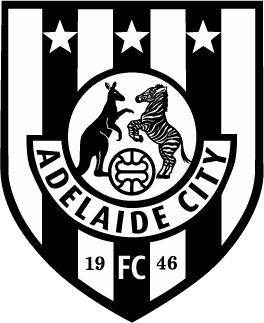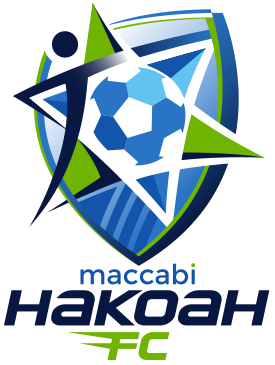The National Soccer League (NSL) was the top-level soccer league in Australia, run by Soccer Australia and later the Australian Soccer Association. The NSL, the A-League's predecessor, spanned 28 seasons from its inception in 1977 until its demise in 2004, when it was succeeded by the A-League competition run by Football Federation Australia, the successor to the Australian Soccer Association.

South Melbourne Football Club is an Australian semi-professional soccer club based in suburb of Albert Park, in Melbourne, Victoria. The club currently competes in the National Premier Leagues Victoria, with matches played at Lakeside Stadium.

Sydney United 58 Football Club is a semi-professional soccer club and current NSW NPL Champions based in Edensor Park, Sydney, New South Wales Australia. The club was formed as Sydney Croatia in 1958, by Croatian Australians in the area, but it was renamed in 1993 as Sydney United after having the name Sydney CSC for a season.
The National Premier Leagues NSW is a semi-professional soccer competition in New South Wales, Australia. The competition is conducted by Football NSW, the organising body in New South Wales. The league is a subdivision of the second tier National Premier Leagues (NPL), which sits below the national A-League. Prior to becoming a subdivision of the NPL in 2013, the league was previously known as the NSW Premier League.
The National Premier Leagues Victoria, commonly known as NPL Victoria, is a semi-professional soccer league in Victoria, Australia. The league is a part of the National Premier Leagues, and is the highest level within the Victorian soccer league system, serving jointly as the second tier within the overall Australian pyramid.

Sydney Olympic Football Club is an Australian semi-professional soccer club, based in Belmore, Sydney, New South Wales, that plays in the National Premier Leagues NSW. The club was founded as Pan-Hellenic Soccer Club in 1957 by Greek immigrants. In 1977, the club changed its name to Sydney Olympic and became a founding member of the Phillips Soccer League, later named the National Soccer League (NSL), the inaugural national football league of Australia, remaining a member of the competition until its demise in 2004.

Marconi Stallions Football Club is an Australian semi-professional football club based in Fairfield, Sydney, New South Wales. The club has been crowned Australian champion four times.

Adelaide City Football Club is a soccer club based in Adelaide, South Australia. The club was known historically as Juventus — the original name given to the club by its founders in Adelaide's Italian community.

Brisbane City Football Club is an Australian semi-professional football club based in Newmarket, Brisbane, Queensland. Founded in 1952, the club competed in the National Soccer League until the 1986 season where they were relegated back to State League Competition. Brisbane City competed in the National Premier Leagues Queensland from 2013, until they were relegated to the lower tier Football Queensland Premier League with one match remaining in the 2020 season. They then won 20 out of 20 matches in the 2021 season to earn immediate promotion back to the National Premier Leagues Queensland. Home matches are played at Spencer Park.

St George FC, commonly called Saints or Budapest, is a semi-professional Australian soccer club based in the St George district in the south of Sydney. The club was founded by Hungarian immigrants in 1957 as Budapest Club and by 1965 was renamed to St. George-Budapest Club.

Maccabi Hakoah Sydney City East FC, commonly known as Maccabi Hakoah, is an Australian semi-professional soccer club based in Sydney, New South Wales. The club was formed in 1939 as Sydney Hakoah by members of Sydney's Jewish community. They played between 1977 and 1986 in the National Soccer League as Eastern Suburbs (1977–1979) and Sydney City (1979–1987). One of the most successful sides in New South Wales and interstate competitions in the 1960s and early 1970s coached by the now retired Bob Szatmari, Hakoah were also one of the main instigators for the establishment of a national league. The club currently competes in the National Premier Leagues NSW, with games played from Hensley Athletic Field.
The sport of soccer has had a long history in the Newcastle, New South Wales and the wider Hunter Region. The area has had a number of teams involved in national competitions from 1978 through to the present day, being represented by the Newcastle Jets in the A-League.
The National Youth League (NYL), was an Australian national soccer league run in parallel to the National Soccer League (NSL) between 1984 and 2004. The aim of the league was to provide a pathway for young players to play regular high-level football, and allow reserve players from senior NSL teams to remain match fit. The league was founded in 1981, alongside the simultaneous expansion of the senior competition. The league later followed the NSL's move to summer competition during the switch to summer play in 1989.

Monaro Panthers FC is an Australian soccer club based in the city of Queanbeyan, New South Wales. The club was founded in 1967, and currently competes in the National Premier Leagues Capital Football in the Australian Capital Territory.
The National Soccer League Cup was an annual knockout football competition in men's domestic Australian soccer organised by the Australian Soccer Federation between 1977 and 1997.

Annerley FC is an Australian football (soccer) club from the area bordering Greenslopes and Annerley, suburbs on the southside of Brisbane. The club was formed in 1945, and currently competes in Capital League 1. The club seeks to encourage participation in sport across the communities of Brisbane's inner southern suburbs by providing quality facilities and football in a caring, inclusive environment.









